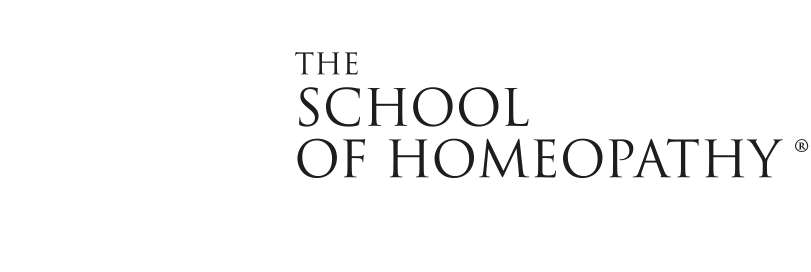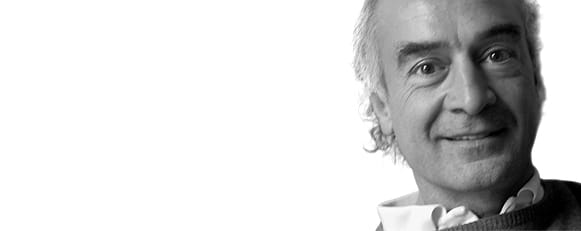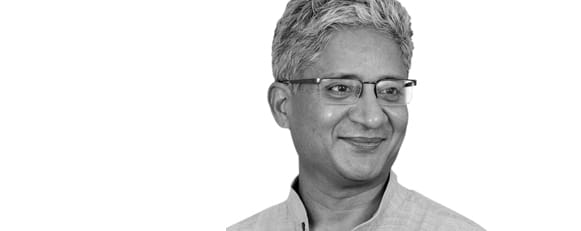

Aphorism 131-140
§ 131
If, however, in order to ascertain anything at all, the same medicine must be given to the same person to test for several successive days in ever increasing doses, we thereby learn, no doubt, the various morbid states this medicine is capable of producing in a general manner, but we do not ascertain their order of succession; and the subsequent dose often removes, curatively, some one or other of the symptoms caused by the previous dose, or develops in its stead an opposite state; such symptoms should be enclosed in brackets, to mark their ambiguity, until subsequent purer experiments show whether they are the reaction of the organism and secondary action or an alternating action of this medicine.
§ 132
But when the object is, without reference to the sequential order of the phenomena and the duration of the action of the drug, only to ascertain the symptoms themselves, especially those of a weak medicinal substance, in that case the preferable course to pursue is to give it for several successive days, increasing the dose every day. In this manner the action of an unknown medicine, even of the mildest nature, will be revealed, especially if tested on sensitive persons.
§ 133
On experiencing any particular sensation from the medicine, it is useful, indeed necessary, in order to determine the exact character of the symptom, to assume various positions while it lasts, and to observe whether, by moving the part affected, by walking in the room or the open air, by standing, sitting or lying the symptom is increased, diminished or removed, and whether it returns on again assuming the position in which it was first observed, – whether it is altered by eating or drinking, or by any other condition, or by speaking, coughing, sneezing or any other action of the body, and at the same time to note at what time of the day or night it usually occurs in the most marked manner, whereby what is peculiar to and characteristic of each symptom will become apparent.
§ 134
All external influences, and more especially medicines, possess the property of producing in the health of the living organism a particular kind of alteration peculiar to themselves; but all the symptoms peculiar to a medicine do not appear in one person, nor all at once, nor in the same experiment, but some occur in one person chiefly at one time, others again during a second or third trail; in another person some other symptoms appear, but in such a manner that probably some of the phenomena are observed in the fourth, eighth or tenth person which had already appeared in the second, sixth or ninth person, and so forth; moreover, they may not recur at the same hour.
§ 135
The whole of the elements of disease a medicine is capable of producing can only be brought to anything like completeness by numerous observations on suitable persons of both sexes and of various constitutions. We can only be assured that a medicine has been thoroughly proved in regard to the morbid states it can produce – that is to say, in regard to its pure powers of altering the health of man – when subsequent experimenters can notice little of a novel character from its action, and almost always only the same symptoms as had been already observed by others.
§ 136
Although, as has been said, a medicine, on being proved on healthy subjects, cannot develop in one person all the alterations of health it is capable of causing, but can only do this when given to many different individuals, varying in their corporeal and mental constitution, yet the tendency to excite all these symptoms in every human being exists in it (§ 117), according to an eternal and immutable law of nature, by virtue of which all its effects, even those that are but rarely developed in the healthy person, are brought into operation in the case of every individual if administered to him when he is in a morbid state presenting similar symptoms; it then, even in the smallest dose, being homoeopathically selected, silently produces in the patient an artificial state closely resembling the natural disease, which rapidly and permanently (homoeopathically) frees and cures him of his original malady.
§ 137
The more moderate, within certain limits, the doses of the medicine used for such experiments are – provided we endeavor to facilitate the observation by the selection of a person who is a lover of truth, temperate in all respects, of delicate feelings, and who can direct the most minute attention to his sensation – so much the more distinctly are the primary effects developed, and only these, which are most worth knowing, occur without any admixture of secondary effects or reactions of the vital force. When, however, excessively large doses are used there occur at the same time not only a number of secondary effects among the symptoms, but the primary effects developed, and only these, which are most worth knowing, occur without any admixture of secondary effects or reactions of the vital force. When, however, excessively large doses are used there occur at the same time not only a number of secondary effects among the symptoms, but the primary effects also come on in such hurried confusion and with such impetuosity that nothing can be accurately observed; let alone the danger attending them, which no one who has any regard for his fellow-creatures, and who looks on the meanest of mankind as his brother, will deem an indifferent manner.
§ 138
All the sufferings, accidents and changes of the health of the experimenter during the action of a medicine (provided the above condition [§§ 124-127] essential to a good and pure experiment are complied with) are solely derived from this medicine, and must be regarded and registered as belonging peculiarly to this medicine, as symptoms of this medicine, even though the experimenter had observed, a considerable time previously, the spontaneous occurrence of similar phenomena in himself. The reappearance of these during the trial of the medicine only shows that this individual is, by virtue of his peculiar constitution, particularly disposed to have such symptoms excited in him. In this case they are the effect of the medicine; the symptoms do not arise spontaneously while the medicine that has been taken is exercising an influence over the health of the whole system, but are produced by the medicine.
§ 139
When the physician does not make the trial of the medicine on himself, but gives it to another person, the latter must note down distinctly the sensations, sufferings, accidents and changes of health he experiences at the time of their occurrence, mentioning the time after the ingestion of the drug when each symptom arose and, if it lasts long, the period of its duration. The physician looks over the report in the presence of the experimenter immediately after the experiment is concluded, or if the trial lasts several days he does this every day, in order, while everything is still fresh in his memory, to question him about the exact nature of every one of these circumstances, and to write down the more precise details so elicited, or to make such alterations as the experimenter may suggest.1
1 He who makes known to the medical world the results of such experiments becomes thereby responsible for the trustworthiness of the person experimented on and his statements, and justly so, as the weal of suffering humanity is here at stake.
§ 140
If the person cannot write, the physician must be informed by him every day of what has occurred to him, and how it took place. What is noted down as authentic information on this point, however, must be chiefly the voluntary narration of the person who makes the experiment, nothing conjectural and as little as possible derived from answers to leading questions should be admitted; everything must be ascertained with the same caution as I have counselled above (§§ 84-99) for the investigation of the phenomena and for tracing the picture of natural diseases.
I have now, after eighteen months of work, finished the sixth edition of my Organon, the most nearly perfect of all.
Samuel Hahnemann














